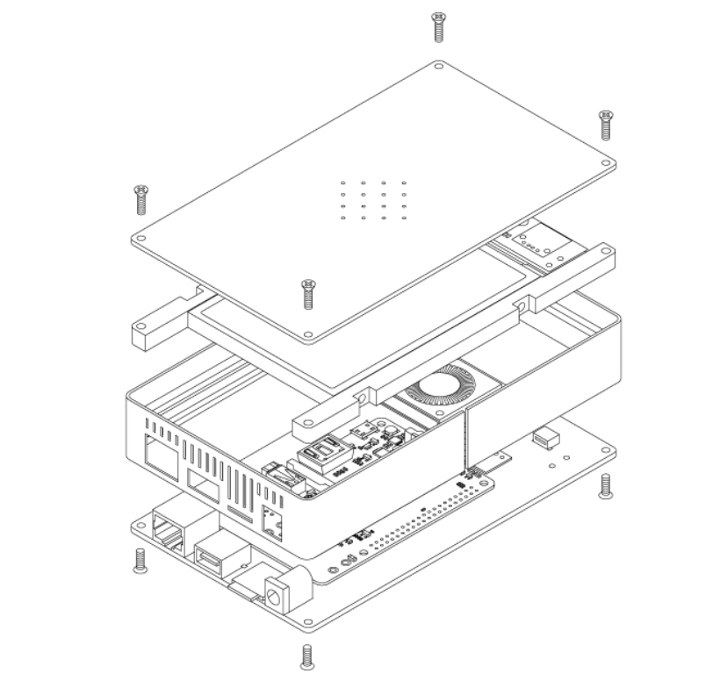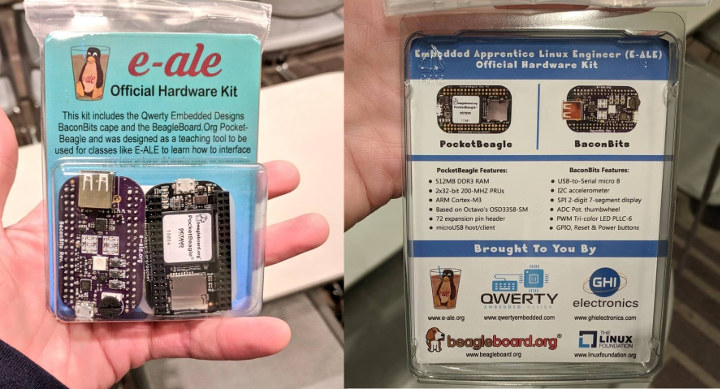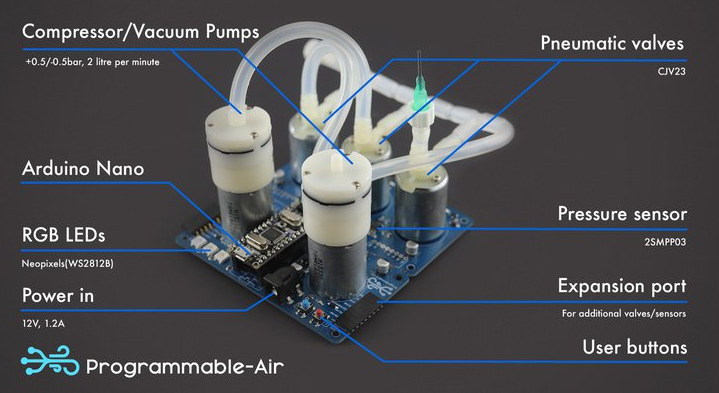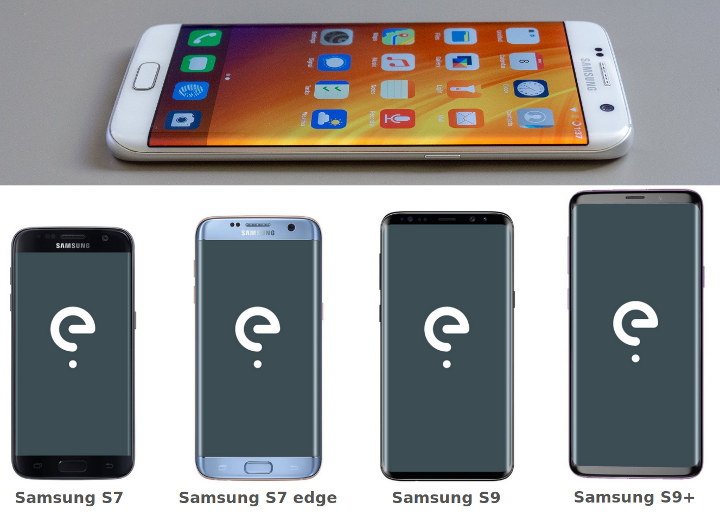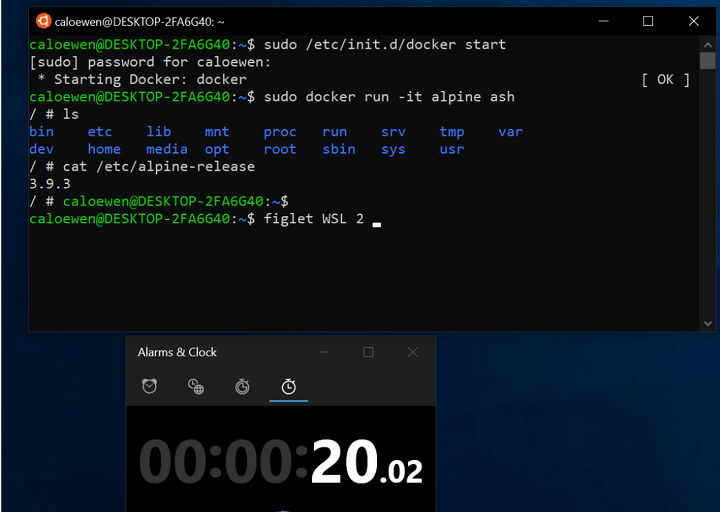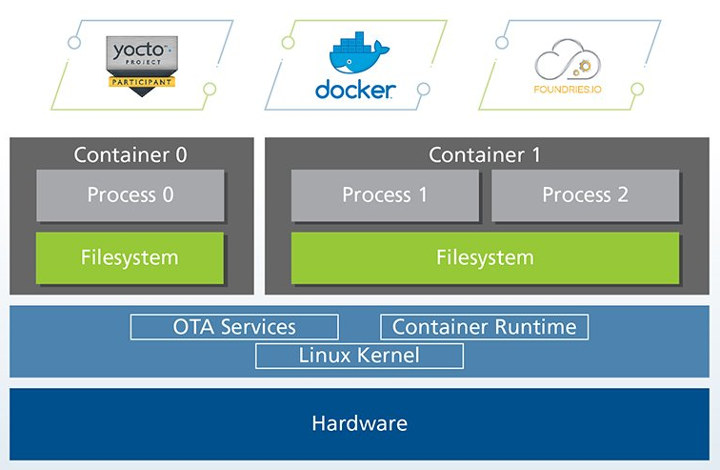We’ve previously covered networked hard drive enclosures with Ethernet and/or WiFi running OpenWrt or Ubuntu that allows you to easily and fairly cheaply connect SATA drives to your local network with models such as Blueendless X3. NODE has done something similar with a DIY project featuring a Raspberry Pi 3 Model B+. NODE Mini Server V2 connects the popular SBC to a 2.5″ SATA hard drive over USB and is designed to build out the physical infrastructure for the decentralized web (e.g. IPFS) that would allow users to replace remote servers with nodes that they themselves own and operate. Having said that nothing would prevent you from using this as a simple NAS although performance will not be as optimal as the aforementioned products due to the lack of SATA or USB 3.0 interface, as well as having “Gigabit” Ethernet limited to 300 Mbps. Having said that the design could […]
E-ALE is a Free & Open Source Linux Training Program for Embedded Engineers
As I wrote about the Embedded Linux Conference 2019 schedule a few days ago, I found out one of talk planned to use E-ALE hardware kit for the session. I had never heard about this kit, but a quick search led me to e-ale.org website which explains E-ALE stands for Embedded Apprentice Linux Engineer. The training program is made for embedded engineers with experience designing firmware for microcontrollers, but now need to transition to embedded Linux. Training only happens in-person (no webinar) at existing Embedded Linux conferences and is comprised of 8 to 9 seminars over 2 to 3 days. It usually starts with a presentation on one subject, followed by lab time to practice the relevant learned skills. The training takes place on the E-ALE kit at each conference, but it does not refer to a specific hardware platform. In most conferences, the PocketBeagle and BaconBits add-on board are […]
Embedded Linux Conference & Open Source Summit 2019 Schedule
In the last few years, I covered the Embedded Linux Conference and IoT Summit schedules since both were happening at the same time and in the same location. But the Linux Foundation have recently announced the Embedded Linux Conference will combine with the Open Source Summit, so the IoT Summit appears to have been phased out. The full schedule for the events taking place on August 21 – 23, 2019 at the Hilton San Diego Bayfront, USA, has also been released, so I’ll create a virtual schedule with some of the sessions most relevant to this blog. Wednesday August 21, 2019 11:30 – 12:05 – What’s New with U-Boot? by Simon Glass, Google LLC U-Boot is a widely used bootloader in embedded systems. Many users are unaware of the wide feature-set of U-Boot, particularly features added in the last few years. This talk aims to bring users (and prospective users) […]
Programmable-Air is an Arduino Nano Powered Pneumatics Kit (Crowdfunding)
Programmable-Air is a hardware toolkit that allows you to inflate and deflate objects. Powered by an Arduino Nano board, the kit comes with high pressure and vacuum pumps, valves, and a pressure sensor that enables users to experiement and learn about pneumatics and inflatables. Some of the potential applications include vacuum pick and place machines, soft robots able to walk, soft robotics hands, using a syringe as a linear actuator, inflatable bras, arts projects and more. Programmable-Air specifications: MCU Board – Arduino Nano board based on Microchip ATMega328P microcontroller Pneumatics – Full channel control, i.e. high pressure through atmospheric pressure to vacuum output in the same tube. Max pressure – 0.5 atmosphere (7.5 PSI / 50 kPa) Min Pressure – -0.5 atmosphere (-7.5 PSI / -50 kPa) Flow rate: 2 liters per minute per motor Expansion Grove I²C connector to easily add sensors (Not shown in prototype photo above) Expandable […]
e.Foundation to Sell Refurbished Phones Running Google-Free /e/ Android OS
Most Android phones come with Google services, which is both a boon and a curse, as those services are often convenient, but they come at the loss of your privacy. For example, most people get all upset and lost if a firmware image for an SBC is shipped without Google Play Store, but yet at the same time they worry about their privacy providing all their data to a single company like Google. There must be a better way, and that’s what the e.foundation is attempting with /e/ operating system based on Android, but without any of the Google Services, and targetting your typical end-users, as opposed to geek. /e/ operating system aims to provide privacy both inside the phone, and via cloud services unrelated to Google. It is a fork of LineageOS 14.1 itself a fork of AOSP, and replaces Google services and apps with programs such as MicroG […]
Windows Subsystem for Linux 2 Gets a Linux Kernel, Faster File System, Docker Support
Microsoft first introduced Windows Subsystem for Linux in 2016 in order to let developers runs bash command from Ubuntu user space without having to install Ubuntu in a virtual machine or container. It relies on the Windows kernel with a library converting Linux system calls into ones compatible with Windows. Performance is great until you start to involve file systems calls, for example during code compilations, something that’s fairly common for developers… Microsoft has been working on solving this performance issue, and compatibility issues with software such as Docker, and is now close to releasing Windows Subsystem for Linux 2 (WSL 2) featuring its own Linux 4.19 kernel instead of the Windows kernel plus a translation layer. WSL 2 uses virtualization technology to run its custom Linux kernel inside of a lightweight utility virtual machine (VM) which takes just 2 seconds to boot. That also means there will be separate […]
Toradex Torizon Industrial Linux Distribution Targets Windows Developers
When we interviewed Toradex right before Embedded World 2019, they told us they would focus on their new software offering called Torizon, an easy-to-use industrial Linux Platform, especially targeting customers are coming from the Windows / WinCE environment or who have only experience with application development and are not embedded Linux specialists. The company has now officially launched Torizon, and provided more details about their industrial open source software solution especially optimized for their NXP i.MX modules. Torizon specifically relies on foundries.io Linux microPlatform which provides full system with a recent stable kernel, a minimal base system built with OpenEmbedded/Yocto, and a runtime to deploy applications and services in Docker containers. The microPlatform is part of TorizonCore (light blue section above) that also includes an OTA client (Aktualizr). TorizonCore is free open-source software, and serves as the base to run software containers. To get started, Torizon provides a Debian container […]
This Open Source Hardware Smartwatch Project is Fully Documented
While there are plenty of smartwatches available, they may not perfectly match your requirements and needs. But did you wake up one day and just decided to build your own? Probably not. But Samson March had his own plans, and as a professional electrical engineer and product designer, he decided to start a smartwatch project during his spare time. What makes it really interesting is that he provided a long list of photos and short videos explaining in details the process, and open-sourced all materials from hardware design files, to firmware source code, and 3D print files for the body and charging dock! The OSHW watch does not have a name (yet) and features the following hardware: Wireless MCU – Dialog Semiconductor DA14683 Arm Cortex-M0 microcontroller up to 96 MHz 128KB RAM, 128KB ROM, 64KB OTP, and with Bluetooth 5.0 connectivity Storage – 128 Mbit SPI flash Display – 1.3″ […]


